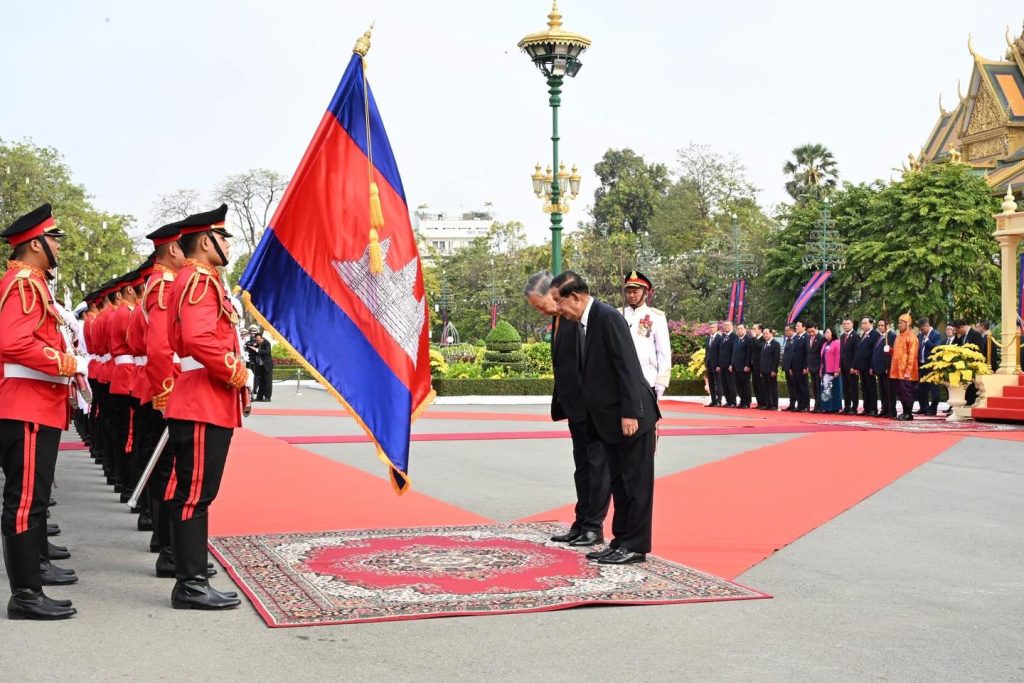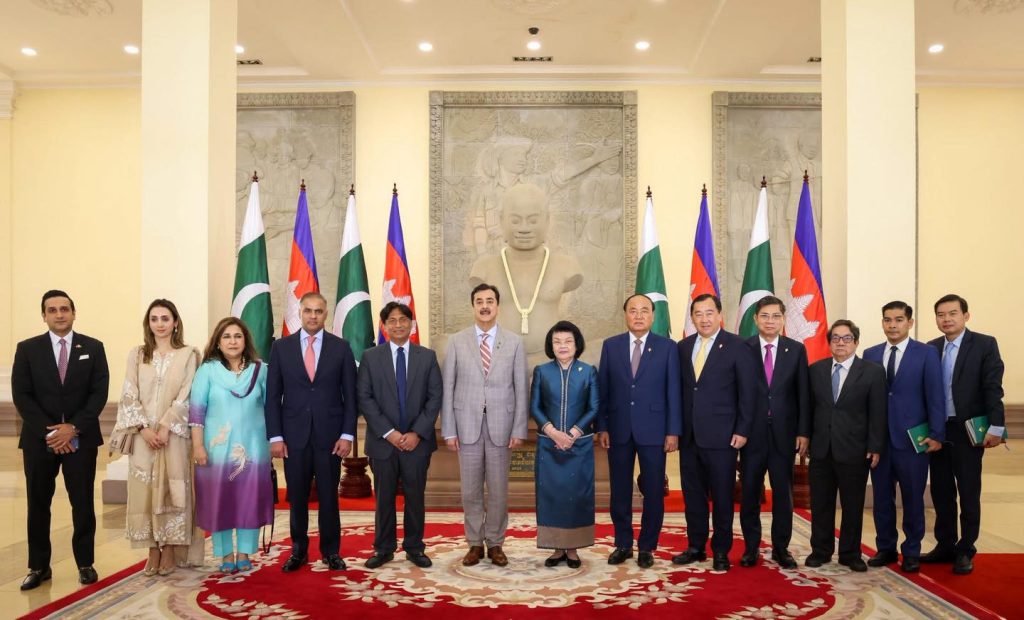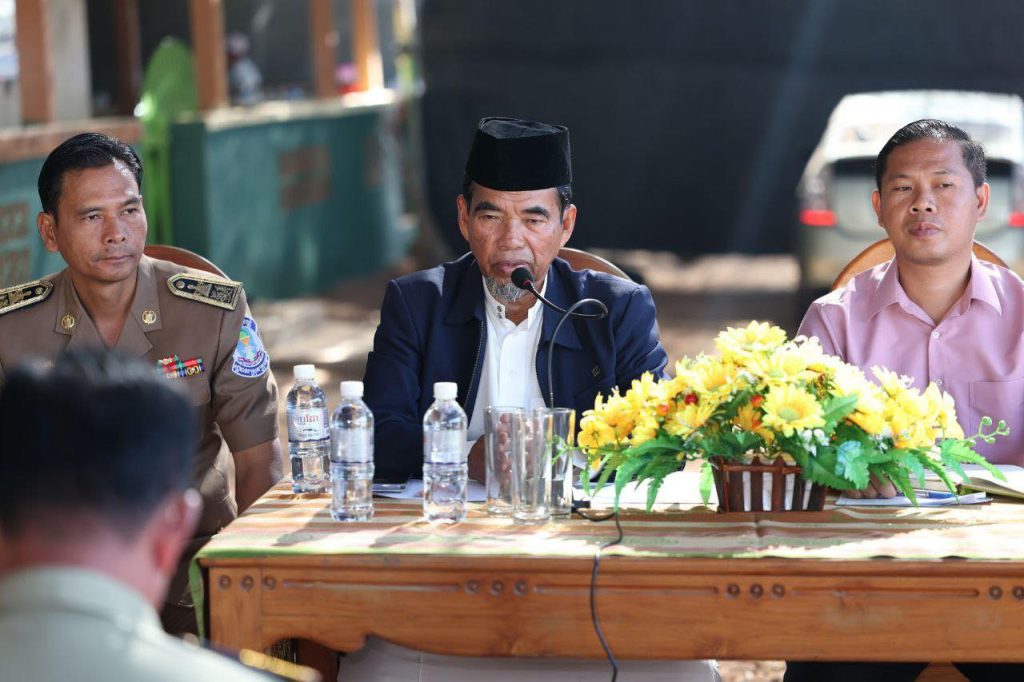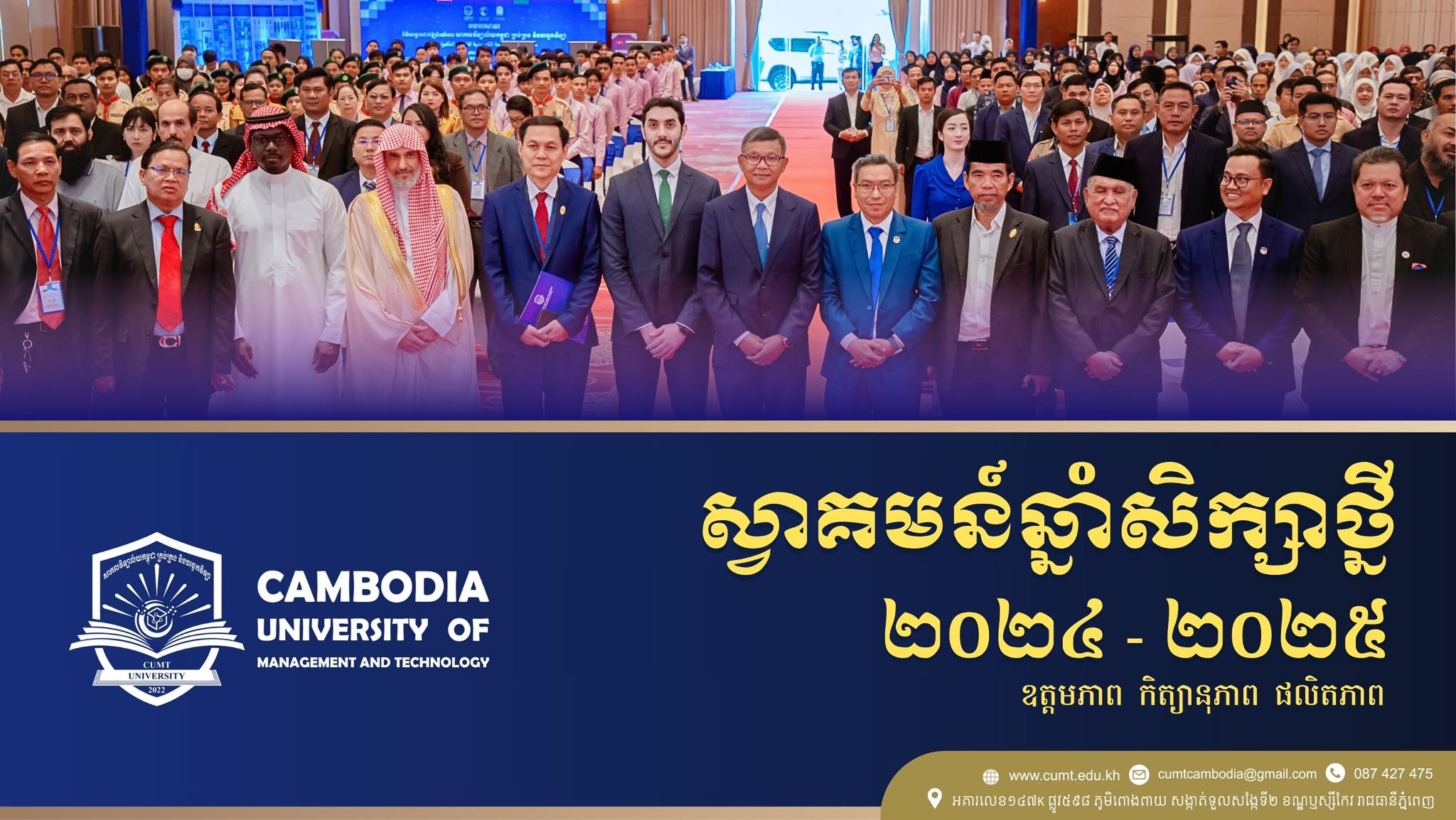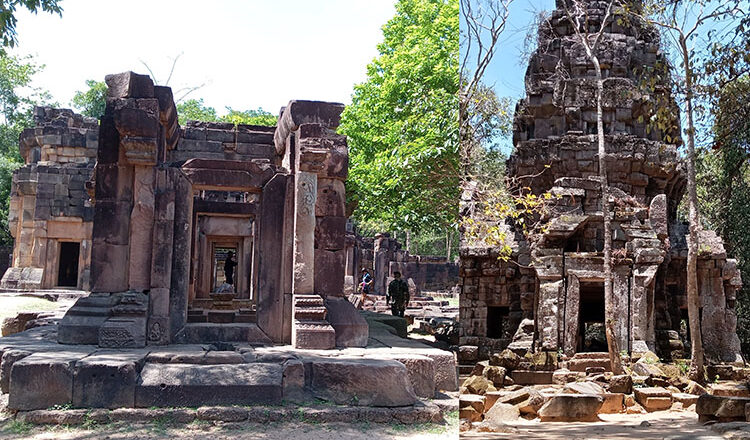
Cambodia condemns Thai general’s plot to seize temples


In a press release issued on Sunday night, the ministry condemned the remarks of Lieutenant General Boonsin Padklang, Commander of Thailand’s Second Army Region, who last week vowed to “reclaim” Ta Krabei Temple and close Ta Moan Thom Temple – both located within Cambodian territory –before he retired in 51 days.
Lt Gen Boonsin made the comments at a ceremony at Suranaree Camp in Nakhon Ratchasima attended by Thai Parliamentary Speaker Wan Muhammad Noor Matha and other officials.
Speaking to the press, the commander alleged Cambodian drone incursions, accused Phnom Penh of massing troops near the contested temples, and pledged to take back Ta Krabei despite what he described as heavy Cambodian fortifications and landmines.
“I confirm that this is our castle, and we must reclaim it,” Boonsin declared, claiming Thai troops are stationed just 30 metres from the temple. He also praised the stout character of his forces, saying injured soldiers often volunteer to return to the front lines as soon as they recover.
The Cambodian Defence Ministry said such statements blatantly contradict the ceasefire agreement reached during a special meeting on July 28 and the spirit of the General Border Committee Extraordinary Session held in Malaysia on August 7, when both sides agreed to halt troop movements and refrain from patrolling beyond their current positions.
“These actions amount to a violation of the ceasefire agreement and a deliberate provocation that threatens peace, stability, and good relations between our two nations,” the statement read.
The ministry reaffirmed Cambodia’s commitment to a peaceful resolution of border disputes and urged Thailand to match its words with “concrete actions” – including by immediately halting all provocations, removing barbed wire allegedly placed on Cambodian soil, and respecting the agreed positions along the frontier.
While stressing that the situation along the border remains calm for now, Phnom Penh appealed to the international community, particularly the countries that helped broker the fragile ceasefire, to pressure Bangkok into compliance.
“The common aspiration of our peoples, and indeed of the global community, is peace and stability,” the spokesperson said, adding that the strong international support for the GBC agreement underscores the urgent need to avoid actions that could reignite hostilities.
Speaking during a press conference yesterday, Lieutenant General Maly Sochea, Cambodian Defence Ministry spokeswoman, once again underlined Cambodia’s firm stance to seek solutions through peaceful means, uphold the principle of peace above all, and strictly implement the ceasefire agreement. She expressed hope that Thailand would take the same position with sincerity.
“The Ministry of National Defence continues to appeal to the international community, especially partner countries that have worked hard to help achieve the ceasefire, to strongly urge Thailand to respect the agreement – not just through words but also through concrete actions – by ending all violations and immediately dismantling and removing all fortifications illegally erected inside Cambodian sovereign territory,” she said.
Boonsin’s statement has also been heavily criticised in Thailand, most notably by Pravit Rojanaphruk, a prominent Thai journalist.
In a Facebook post, Pravit sarcastically recommended that the “all-powerful” Lt Gen Boonsin be given Thailand’s top posts because of how much influence and autonomy he seems to wield in matters of security and foreign policy.
“On why at this stage, we might as well name 2nd Army Region Commander Lt Gen Boonsin Padklang the all-powerful by concurrently holding the following posts: Acting PM, Gov’t spokesperson, Foreign Minister, Foreign Ministry spokesperson & more if he can handle it,” he wrote.
“Today, we have to ask ourselves: what is the point of having a Ministry of Foreign Affairs and a civilian government? They’ve been trying to tell the international community that Thailand respects the ceasefire agreement, but all of a sudden yesterday evening, the commander of the Second Army Region, Lt Gen Boonsin Padklang, announced that he would reclaim the disputed Ta Kwai (Ta Krabei) Temple because ‘it belongs to Thailand’.”
Notably, in July, Thailand’s political index declined to 3.86 from 4.13 in June, according to a Suan Dusit Poll. The survey, based on 25 indicators, showed declines across most areas and was conducted among 2,171 people from July 26 to 31.
Asian Vision Institute President Chheng Kimlong said Thailand is using its conflict with Cambodia to shift attention from its internal political problems.
He called on the international community as well as members of the United Nations Security Council, especially the US and China, to keep a close eye on Thailand’s violations and potential violations of the hard-earned ceasefire and take action against the country.
“In this modern day and age, Thailand cannot rely on the law of the jungle and the might-is-right concept to justify its attack on Cambodia,” he said.
Documentation Centre of Cambodia Director Youk Chhang, who was the 2018 recipient of the Ramon Magsaysay Award, told Khmer Times that Cambodia, when pointing out instances of Thai aggression, needs to single out Lt Gen Boonsin, who has been in charge of border operations against Cambodia.
Youk stated that Boonsin has led an operation that could be described as a genocide.
“Genocide is the deliberate and systematic destruction of a national, ethnic, racial, or religious group,” he said. “It is considered a crime under international law and involves specific acts with the intent to destroy, in whole or in part, one of these protected groups.”
These acts, Youk added, include killing members of a group, causing them serious bodily or mental harm, deliberately inflicting conditions of life calculated to bring about their physical destruction, imposing measures to prevent births within the group, and forcibly transferring children of the group to another group.
“The crime of genocide or any violations of the laws of armed conflict should not be thrown around for ideological, political, or personal purposes; rather, these must be terms informed by a consideration of the facts on the ground and objectivity,” he said.
“Notwithstanding, we should not be afraid to discuss the subject of genocide or other crimes when concerns are legitimately raised about the deliberate acts by a uniformed military officer relative to a civilian population or other protected persons.”KhmerTime


